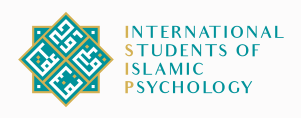College of Islamic Studies in partnership with the Khalil Center, the International Association for Islamic Psychology (IAIP) & the International Students of Islamic Psychology (ISIP) Foundation
Conference Overview
Over the past decade, there has been widespread interest and a growing number of publications on topics related to the clinical practice of Islamic Psychology. Alongside the growth in the literature, this trend has also witnessed the increased establishment of organizations, clinics, conferences, symposiums, and courses within this nascent field. Such an interest in Islamically-oriented mental health services continues to grow alongside the interest in the new generation of Muslim practitioners to be trained in Islamically integrated methods of psychotherapy.
Muslims have become dissatisfied with merely importing Western ideas and models to their countries and communities and are in search of truly integrative and religiously aligned solutions to their mental health concerns. Furthermore, the broader field of psychology is looking to add diverse voices and perspectives to the discourse as evidenced by the American Psychological Association’s featuring of Islamic psychology in their conferences and publications over the past few years. To meet this current demand, Muslim scholars have been publishing and offering training to equip practitioners with the skills to serve the Muslim population.
The field is witnessing several IP training programs coming together, courses added to existing universities worldwide, and recent diplomas in Islamic Psychology being established. Now, the first international graduate MA in Counseling Psychology is to be offered in 2024 at Hamad Bin Khalifa University (HBKU) housed within the College of Islamic Studies (CIS). In order to help inform these current and future programs of training and education in Islamic Psychology, the theme of this symposium is focused on Education, Training, and Research in Clinical Islamic Psychology. Topics discussed in this symposium will help inform the development of Islamic Psychology education and enrich programs in the field by bringing together leading scholars in the industry to discuss approaches to training and education.
Chair’s welcome message
I am thoroughly excited to announce this first symposium in a series of upcoming academic activities on Islamic Psychology at Hamad bin Khalifa University. We pray that HBKU will serve as a leading center for research and education in Islamic Psychology worldwide. This symposium is very timely given the current state of the field of Islamic Psychology. Given the abundance of interest in Islamic Psychology and the emergence of programs internationally, this symposium will be the first to focus on education in the clinical applications of Islamic Psychology. As an educator of Muslim mental health professionals and researcher in the field, I personally look forward to benefiting from the contributions of the scholars who will make up the symposium. I anticipate deriving many insights and directions regarding the philosophies, objectives, deliverables, and approaches to nurturing and training the next generation of practitioners and scholars in this field.
Dr. Hooman Keshavarzi
Program Director and Assistant Professor
MA in Counseling Psychology
 |
 |
 |
About
About The College of Islamic Studies
HBKU’s College of Islamic Studies (CIS) was founded to become a beacon for contemporary Islamic scholarship and thought, and a platform for meaningful intellectual and cultural dialogue on Islam and Muslims. Through its nine academic offerings and research centers, the college seeks to address some of the most pressing questions facing Muslim communities today, both locally and globally. Through its offerings, the college strives to advance a better understanding of Islam and its social dimensions and to produce graduates who can contribute and excel in a rapidly changing world.
About Hamad Bin Khalifa University
Hamad Bin Khalifa University (HBKU), a member of the Qatar Foundation for Education, Science, and Community Development (QF), was founded in 2010 to continue fulfilling QF's vision of unlocking human potential. HBKU is a homegrown research and graduate studies University that acts as a catalyst for positive transformation in Qatar and the region while having a global impact.
Located within Education City, HBKU seeks to provide unparalleled opportunities where inquiry and discovery are integral to teaching and learning at all levels utilizing a multidisciplinary approach across all focus areas.
HBKU is committed to actively contributing to achieving the Qatar National Vision 2030 by building and cultivating human capacity through an enriching academic experience and an innovative research ecosystem. Through applying creativity to knowledge, students will be able to discover innovative, locally relevant solutions that have a global impact.
At Hamad Bin Khalifa University – our students, faculty, staff, partners, and leadership – all share a common belief in the power of higher education and research to make a positive impact on the development of nations.
More information at www.hbku.edu.qa
About Education City
Our flagship initiative is a campus of more than 12 square kilometers that hosts branch campuses of some of the world's leading educational institutes, a homegrown university, and other research, scholastic, and community centers. Together, these institutes make Education City a unique model of academic and research excellence, pioneering a new approach to multidisciplinary, global education and enabling breakthroughs that benefit Qatar and the rest of the world.
More information at https://www.qf.org.qa/education/education-city
About Qatar
Qatar has been an independent sovereign state since 1971. Qatar comprises an 11,500 sq. km peninsula extending northwards into the Arabian Gulf. It has 563 km of uninterrupted coastline. The country's population stands at 2.69 million and its capital city is Doha.
Local time is GMT/ UCT + 3 hours. There are no daylight savings adjustments.
Qatar has a desert climate with year-round sunshine, very hot summers, and mild winters. Mean monthly temperatures range from 17°C in January to 36°C in July, sometimes reaching highs of 45°C+ during the summer. Rain is infrequent, falling in brief showers mainly in winter.
Capital: Doha
Population: 2.68 million
Area: 11,500 sq. km
Language: Arabic
Religion: Islam
Currency: Qatari Riyal
Power Connection: The power plugs and sockets are of type D and G. The standard voltage is 240 V and the standard frequency is 50 Hz.
Transportation
Karwa is the national taxi and limousine service. To book a taxi call +974 800 8294. You can pay by cash, bank card, or mobile payment.
Karwa taxis can be ordered or pre-booked via the Karwa Taxi app (available on iOS and Android), or hailed from the street.
UBER taxi service is also active in Qatar.
You can use your international driving license for seven consecutive days.
Metro
The metro system has three lines (Gold, Green, and Red) covering 37 stations. Trains run every 3 minutes and staff are available at every station to assist you during your journey.
You can buy a travel card at stations and then save time by topping up online or on the Qatar Rail app (iOS and Android)
All stations have elevators and all train carriages provide space for wheelchair users and pushchairs, as well as guide dog allowances. You can check the Qatar Rail website before you travel.
Free Metrolink buses run useful routes within 2 - 5 km of stations.
If you are traveling to central Doha, you can take the metro to one of these stations, which are conveniently located to access the Corniche area. You can change lines at Al Bidda (Red and Green) stations and Msheireb (Red, Green and Gold)
More information at https://www.qr.com.qa/home
Currency Exchange (March 2023)
Minor Unit: 1/100 = Dirham
- 1.00 EUR = 3.88 QAR
- 1.00 USD = 3.64 QAR
- 1.00 GBP = 4.40 QAR
More information at https://www.visitqatar.qa
Call for Papers
CONFERENCE SCOPE
The College of Islamic Studies (CIS) at Hamad Bin Khalifa University (HBKU) is pleased to invite scholars, academics, and researchers to submit their research papers to a seminar on “Advancing the Clinical Practice of Islamic Psychology Through Education and Research” in Doha, Qatar, during the period of February 7–8, 2024.
This seminar aims to explore the current growing interest and efforts advancing the field of Islamic Psychology (IP) through educational initiatives, research projects, and clinical models. The aim is to explore such efforts in the broader field of Islamic psychology and its related subfields and applications.
PROGRAM DESCRIPTION
Scholars whose submissions will be accepted will be given an opportunity to provide an oral presentation of their work followed by a discussion. Some distinguished scholars will also be requested to participate in a closed workshop/focus-group-style discussions exploring curriculum design and syllabus development for graduate degree programs in Islamic Psychology.
Description and Methodology of Research Papers
A paper may be dedicated to one or more topics/questions outlined in the Call for Papers document. Papers may be theoretical, empirical, or applied in nature. Papers may survey and evaluate existing programs, resources, and curricula. Reports and technical documents such as a proposed code of ethics, for example, are acceptable. Scholars and researchers are welcome to address the broader field of Islamic Psychology with an emphasis on applied psychology (i.e. counseling/clinical psychology). Thus, papers with practical applications will be given preference.
Selection Criteria
The suggested questions outlined in the Call for Papers are not a comprehensive list of topics. Thus, researchers can always address other questions as long as the submitted paper falls within the scope of the symposium and keeps the main aim in mind: advancing the clinical applications of Islamic Psychology through education and research.
All submitted abstracts and full papers will be evaluated by an academic review committee whose members will collectively decide which submissions are accepted/rejected.
Practical Information & Deadlines
Prospective applicants are kindly requested to send:
- An abstract (300–500 words), describing the research’s core ideas, main and sub-questions, and how they will be addressed in the light of this Call for Papers.
- A brief biography (max. 500 words) outlining the applicant’s academic background, main research interests, and key publications.
Authors whose abstracts are accepted will receive an invitation to send their full papers (between 5,000 and 7,000 words) within the deadline specified below.
Languages
Submissions (abstracts, bios, and full papers) can be written in either English or Arabic.
Plan of Publication
After the seminar, the full proceedings will undergo a review process by an academic review committee. The papers that will successfully go through this process will be published as an edited volume by a reputable publisher (to be determined).
Benefits
HBKU-CIS will offer the authors of accepted papers the following:
- A refereed publication.
- The cost of making the publication available via open-access.
- Travel and accommodation costs for the three days of the seminar.
- Simultaneous Arabic-English translation throughout the seminar.
IMPORTANT DATES
Deadline for receiving abstracts and bios: Nov 30, 2023
Authors whose abstracts are accepted will be notified and invited to write the full papers: Dec 15, 2023
Deadline for receiving full papers: Jan 15, 2024
The proceedings of the seminar: Feb 7–8, 2024
Deadline for submitting a revised version of the symposium full papers, based on the remarks raised by the review committee and the deliberations during the seminar: May 31, 2024
KEY INFORMATION
- Financial Support: The conference organizers will cover the expenses associated with visa, flight tickets, and accommodation for selected presenters.
INQUIRY
Submissions or any inquiries must be sent to islamicpsychology@hbku.edu.qa.
Please note that only submissions sent to this e-mail will be considered and evaluated.





